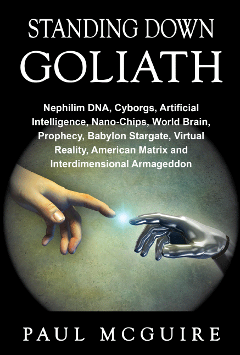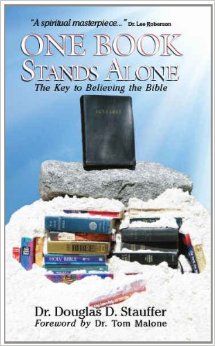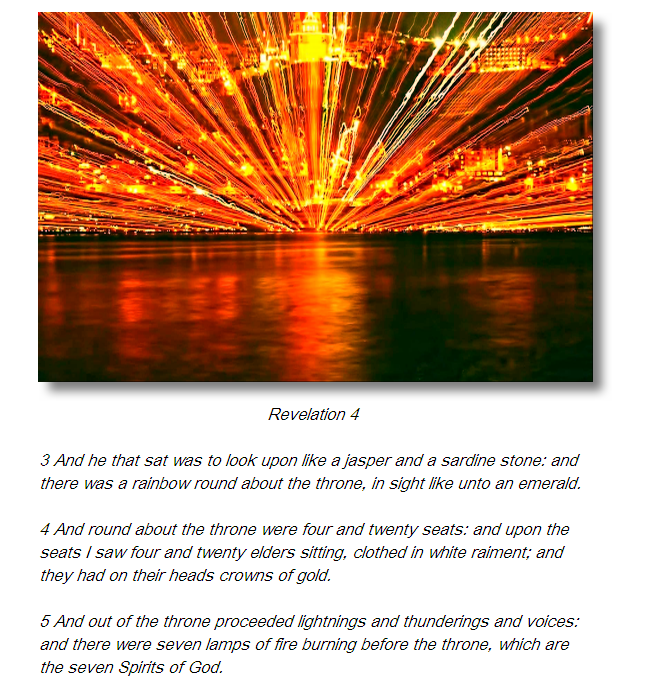A New Post from Dr. Chambers at Paw Creek:
At
the very foundation of every scheme of Satan is the hidden effort to buy your
soul.
The youth of our world are selling
their souls to this dark deceiver for 10 cents a dozen. This present generation
of women will sell out to him just for the titillation of looking sexy. Our men
today are so unmanly that their price is another toy to entertain them.
The New World Order under
the “Mystery of Iniquity” is actually using Biblical language. The ancient
city of Babylon will be the antiChrist’s capitol. When God judges this world
order, one of their condemnations is the trafficking of souls. The world system
is already talking that kind of language. A new movie called “Babylon 5” has a
secondary title, “Rivers of Souls.” The idea of this movie is called “The
Babylon Project.”
Never has the price of
souls been so cheap to the world families. I can remember as a boy 60-70 years
ago hearing a song on the “Grand Ole Opera” about this subject. One title I
recall was, “Where the Soul Never Dies.” It seems to my memory that the value
of a soul was considered priceless in that day. We did not cremate the dead
because everything of life was much too respected. The Bible is very plain: “For what shall it profit a man, if he shall gain the
whole world, and lose his own soul? Or what shall a man give in exchange for
his soul?” (Mark 8: 36-37)
The temptation of Jesus Christ reveals
to us the extent of Satan’s control of this world. He is truly “the god of this world.” (II Corinthians 4:4) He
is also the “prince of the air.” (Ephesians 2:2)
Let’s look at the full text of Satan’s claim to Jesus Christ. It had to be true
or Christ’s temptation would be false. If Jesus Christ was truly tempted the
claims of the devil had to be believed by the Son of God. “And the devil, taking him up into an high mountain,
shewed unto him all the kingdoms of the world in a moment of time. And the
devil said unto him, All this power will I give thee, and the glory of them:
for that is delivered unto me; and to whomsoever I will I give it. If thou
therefore wilt worship me, all shall be thine. And Jesus answered and said unto
him, Get thee behind me, Satan: for it is written, Thou shalt worship the Lord
thy God, and him only shalt thou serve.” (Luke 4: 5-8) This is a clear
picture of this world’s control by the devil. Not only is the power at his
command but the glory is his to give.
Let’s list an array of
world powers that Satan rules over. Most communities, cities, or nations
have no idea of the behind-the-scenes movements. The Bible makes it plain that
nothing happening in our world is an accident. We are commanded to acknowledge
the Lord in all our ways so He can direct our path.
“In all thy ways acknowledge him, and he shall direct thy paths.” (Proverbs
3:6) No Christian should make one simple decision without seeking His
will. The small things we take for granted may well lead to big things swiftly.
1. Satan uses wealth to
ensnare multitudes. Nothing in the devil’s arsenal is more powerful than
money. The Christian world claims their citizenship is in heaven but at the
same time their treasures are in the world in banks, stocks and bonds, and
stored in many worldly places. The devil must laugh at such carelessness. The
biggest deception in the church is the “name it, claim it” crowd of wealth
seekers. The preachers in this deception are facing incredible judgment for
being used by the devil. Money can be stewardship or it can be poison for the
soul.
2. Worldly pleasures are
powerful snares to capture people. The Bible speaks powerfully of the
danger in empty pleasures. Remember the warnings “lovers
of pleasure more than lovers of God.” (II Timothy 3:4) Look at the ball
stadium full of souls on the sacred day called “The Lord’s Day.” Again, Born
Again Christians should never be in such a place on the Lord’s Day. Our
pleasures must be sanctified and pure and limited to family times and pure
experiences.
3. Nothing has captured
the world as has sexy and skimpy dress. No one would be honest not to admit
that the modern dress has created a lustfulness everywhere we look. Sex has
taken almost complete control of the youth of this generation. The statistics
of sexual activity among teenagers is staggering. Good common sense must admit
the connection. Adult men and women dress like they have lost all control and
decency. Satan holds this carrot right out in front of our modern world and he
is buying these souls at a dirt cheap price.
4. Satan was the inventor
of music and he uses it to the fullest. Elvis Pressley learned to sing in an
Assembly of God Pentecostal church. He could have blessed the world with gospel
music. Instead he made “Rock and Roll” the god of millions. When Satan was
finished he sent him ahead of himself to await his arrival. I have watched
precious families who had sweetheart children that became beautiful singers
that were quickly bought by the “Mystery of Iniquity” and left the fundamental
faith and sold out to the world. The only word for Satan’s fantasy with music
and how he has purchased almost the entire church world with this lure is
“heart breaking.”
5. Satan will promise to
make you famous. Then he will give you exceptional talents to make people
grovel at your feet, plus great treasures of the world but he must have your
soul in exchange. He even lies about your final destination but the picture is
too plain. His prize is always and in every instance your soul.
6. We live in an hour
when the souls of men are actually on the slave market. The price has
become dirt cheap and most of the world loves their slavery. Sin seems so much
fun and the sexual pleasures are at the top of the list. Family values and
Biblical morals have been trashed until they seem old-fashioned and repulsive.
The worst of sins are now the greatest of excitement. To a saint of God truly
“Born Again” it is sickening and heart breaking.
7. Satan wants you to
spend eternity with him. Look throughout your Bible at the great men that sold
their birthright. Esau and Judas are two that both sought repentance and could
not find it. Many as the prodigal son repented and came back to the hope and
promises of the Lord. Everything in your life, your decisions and all your
plans, must be weighted by the perfect truths of the Holy Scripture. The wiles
and tricks of Satan are hidden in almost every aspect of our lives.
Churches are full of
schemes, plans, and theologies that have been devised by Satan and his
antiChrist. No wonder the Lord warned us over and over to be overcomers. The Lord was
quoted in Luke saying,“And take heed to yourselves,
lest at any time your hearts be overcharged with surfeiting, and drunkenness,
and cares of this life, and so that day come upon you unawares. For as a snare
shall it come on all them that dwell on the face of the whole earth. Watch ye
therefore, and pray always, that ye may be accounted worthy to escape all these
things that shall come to pass, and to stand before the Son of man.” (Luke 21:
34-36)
You are in Satan’s cross
hairs so watch and pray. He will offer you many things but every offer is full of
lies, hidden lies to deceive.
You may view the latest post at
http://www.pawcreek.org/sanctuary-sermons/satans-design-is-to-buy-your-soul
Best regards,
Joseph Chambers
jrc@pawcreek.org
You may view the latest post at
http://www.pawcreek.org/sanctuary-sermons/satans-design-is-to-buy-your-soul
Best regards,
Joseph Chambers
jrc@pawcreek.org



 “And the feast of harvest, the firstfruits of thy labours, which thou hast sown in the field: and the feast of ingathering, which is in the end of the year, when thou hast gathered in thy labours out of the field” (Exodus 23:16).
“And the feast of harvest, the firstfruits of thy labours, which thou hast sown in the field: and the feast of ingathering, which is in the end of the year, when thou hast gathered in thy labours out of the field” (Exodus 23:16). Another great example of faith is revealed when David challenged Goliath the Philistine: “Then said David to the Philistine, Thou comest to me with a sword, and with a spear, and with a shield: but I come to thee in the name of the LORD of hosts, the God of the armies of Israel, whom thou hast defied” (1 Samuel 17:45). The issue was not the nation of Israel and their potential defeat. Goliath defied the God of Israel. That was the reason for his defeat. Three times we read in that chapter why David fought and won against Goliath. “…Who is this uncircumcised Philistine, that he should defy the armies of the living God?” “Seeing he hath defied the armies of the living God….” And directly addressed to Goliath, “I come to thee in the name of the LORD of hosts, the God of the armies of Israel, whom thou hast defied” (verses 26, 36, 45).
Another great example of faith is revealed when David challenged Goliath the Philistine: “Then said David to the Philistine, Thou comest to me with a sword, and with a spear, and with a shield: but I come to thee in the name of the LORD of hosts, the God of the armies of Israel, whom thou hast defied” (1 Samuel 17:45). The issue was not the nation of Israel and their potential defeat. Goliath defied the God of Israel. That was the reason for his defeat. Three times we read in that chapter why David fought and won against Goliath. “…Who is this uncircumcised Philistine, that he should defy the armies of the living God?” “Seeing he hath defied the armies of the living God….” And directly addressed to Goliath, “I come to thee in the name of the LORD of hosts, the God of the armies of Israel, whom thou hast defied” (verses 26, 36, 45). The Three Feasts
The Three Feasts “Sukkot (Feast of Booths, Feast of Tabernacles) is a biblical Jewish holiday celebrated on the 15th day of the month of Tishrei (varies from late September to late October). It is one of the three biblically mandated festivals (shalosh regalim) on which Hebrews were commanded to make a pilgrimage to the Temple in Jerusalem.
“Sukkot (Feast of Booths, Feast of Tabernacles) is a biblical Jewish holiday celebrated on the 15th day of the month of Tishrei (varies from late September to late October). It is one of the three biblically mandated festivals (shalosh regalim) on which Hebrews were commanded to make a pilgrimage to the Temple in Jerusalem.
 It is God who gives life and it is God who sustains life. That fact today is virtually ignored in the scientific world. Man has achieved so many marvelous things and produces so much food that there is an overabundance available in most countries of the world. Nevertheless, that does not change the fact that man totally depends on God’s grace to send rain so vegetation can grow to feed man and animals. But in general, man does not acknowledge that simple fact.
It is God who gives life and it is God who sustains life. That fact today is virtually ignored in the scientific world. Man has achieved so many marvelous things and produces so much food that there is an overabundance available in most countries of the world. Nevertheless, that does not change the fact that man totally depends on God’s grace to send rain so vegetation can grow to feed man and animals. But in general, man does not acknowledge that simple fact. We acknowledge the many achievements of science, its understanding of the intricate functions of life in plants, animals, and man. But the more man learns how God created things, the more he becomes independent from God. That is today’s natural process; away from God, closer to self. The better we can explain our world geologically and topographically, and understand the multi-functioning and interconnected operations of planet Earth, the less we need the Bible and the Author of Holy Scripture, the Creator of all things. That is the sad fact.
We acknowledge the many achievements of science, its understanding of the intricate functions of life in plants, animals, and man. But the more man learns how God created things, the more he becomes independent from God. That is today’s natural process; away from God, closer to self. The better we can explain our world geologically and topographically, and understand the multi-functioning and interconnected operations of planet Earth, the less we need the Bible and the Author of Holy Scripture, the Creator of all things. That is the sad fact. Most of us are familiar with the story of Shadrach, Meshach, and Abednego, who were thrown in the fiery furnace but came out untouched. Again, the king recognizes God, “Then Nebuchadnezzar spake, and said, Blessed be the God of Shadrach, Meshach, and Abednego, who hath sent his angel, and delivered his servants that trusted in him, and have changed the king’s word, and yielded their bodies, that they might not serve nor worship any god, except their own God” (Daniel 3:28). For the second time, Nebuchadnezzar recognized God—but did not KNOW Him.
Most of us are familiar with the story of Shadrach, Meshach, and Abednego, who were thrown in the fiery furnace but came out untouched. Again, the king recognizes God, “Then Nebuchadnezzar spake, and said, Blessed be the God of Shadrach, Meshach, and Abednego, who hath sent his angel, and delivered his servants that trusted in him, and have changed the king’s word, and yielded their bodies, that they might not serve nor worship any god, except their own God” (Daniel 3:28). For the second time, Nebuchadnezzar recognized God—but did not KNOW Him.
















